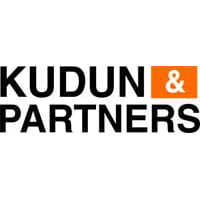
China 2019

Chief legal officer | Mary Kay China





Wendy Wang
Chief legal officer | Mary Kay China
What are the most important transactions and litigations that you have been involved in during the last two years? First I would mention the implementation of an enterprise-wide compliance programme incorporating communication, education and recognition pillars. Second, I would point out the establishment of a sales channel integrity strategy function. Finally, the structuring of multimillion-dollar strategic partnerships with key vendors to support the acceleration of new product offerings has proved to be extremely important for our company. What are the unique challenges, if any, of working in-house for a foreign multinational in China? In my experience, it is both a challenge and an opportunity to evolve the concept of risk management as the business along with the legal and regulatory landscape change very fast. Risks are not viewed as static, and risk tolerance and appetite changes with the business growth and direction. Not only do we have to be more vigilant in terms of monitoring the external landscape to access the business impact and implement risk control measures, we should also think about whether the issues we are spotting are pure threats or opportunities for us to advance the business. What political, economic or regulatory changes have impacted the company and you recently?
Overall, China’s economic slowdown and the continuing US-China trade tension are of concern to us. From a regulatory perspective, there has not been many changes which negatively impacted us operationally but the promulgation of new laws, such as the ecommerce legislation, certainly provided opportunities for us to have a better platform for more open dialogues with key stakeholders to help us shape and optimise our model of compliance and development. When selecting a law firm, what criteria do you evaluate the potential firms by? I do not view law firms as pure outside resources, I like to think of them as an extension of the in-house legal team. In selecting a law firm, relevant experience, solution-oriented mentality, strategic intelligence network and cost efficiency are my primary criteria. Do you use any “legal tech” products and do you find them a helpful management device? The use of technology is an opportunity area for my legal team. We have started to pilot an AI solution for internal clients as a self-serve mechanism for inquiries on legal policies and process type questions. In the future, we expect to expand the scope and coverage of the application.
What will be the focus for the company in the next 12 months and how do you intend to assist with this?
This is an exciting time for Mary Kay China. As a company, we have been through and implemented many changes in the past 12 months whether it’s from an organisational structure perspective or a business operation perspective. The ability to manage changes is no longer a foreign concept to us and not only do we embrace changes but we also look forward to enabling changes. As we continue our evolvement with our six priorities (transforming the sales force experience; modernising our brand and beauty experience; strengthening and enforcing the career path; sharpening the focus of product portfolios; developing a knowledgeable, agile and collaborative workforce; and redesigning the supply chain to serve the direct selling model of the future), I expect my legal team to be a central and integral support function for each of these strategic priorities and partner with the business teams to co-create our future successes. At the same time, building the fundamental governance, risk and compliance management system for the company will also be our focus for the next 12 months to anchor the basic business core and ensure integrity in the process of the company’s evolvement and development. FOCUS ON… A metamorphosis, a genetic alternation, a heritable modification, a substantive conversion, while there are many words and phrases to define the word transformation, to chief legal officers, as the anchor of every change and transformation, it is the principle of compliance of doing the right thing. Because of this value we uphold, there is often the misconception that legal is risk and therefore is adverse to changes and may even hinder the path of business transformation. I respectfully disagree. In fact, I adamantly disagree. I firmly believe in the integral value of legal being change enablers. Since I first took up this job as chief legal officer, it has been my vision for legal to be more than legal advisors and strategic business partners. I wanted legal to be change agents in mapping the path for healthy and sustainable growth. I am even going to make a bold statement and position chief legal officers as chief transformation officers of the company. Companies do not make changes for the sake of making changes. We change for a purpose, whether it’s to resolve a problem, to advance the business, to correct a course or to prepare for the future. Behind every change there is a bold and courageous action. And behind every action there is also an informed decision made by the business and powered by the fact-based analysis and risk evaluation conducted by legal anchored in doing the right thing. In this process, legal ensures that we understand
the goals, align with the intentions, educate ourselves on the relevant knowledge, take into consideration trends and other business factors, anticipate risks, think through the implications, weigh legal recommendation against business realities and articulate a clear risk and benefit
analysis along with a co-created solution for a
smart business decision. In this process, legal not only supports and embraces the necessity for changes but also enables purposeful changes
which are well grounded within the company’s
core values and strategically set up to ensure a sustainable future. In today’s world of volatility, uncertainty, complexity and ambiguity, businesses are expected to transform and step up their game to fit the new expectations of the new generation. By the same token, chief legal officers are also expected to not only define the bottom line and set parameters for business operations, but also elevate our roles to map the path for business transformations which are inevitable for future success. As chief legal officer, I am stepping up
into the role of chief transformation officer. Are
you ready for the same?